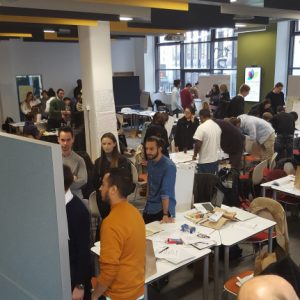Earlier this year, the US biotech company Proteus announced that it had raised US$172 million for its pioneering tablets containing embedded microchips. These swallowable devices collect and report biometric data and can tell if a patient has taken their medication correctly.
In a similar breakthrough, Google has recently announced a prototype contact lens which measures glucose in a user’s tears and communicates this information to a mobile phone so that patients can better manage their medication.
Both innovations illustrate the hybrid devices that medicines have now become – and highlight the cumbersome and mostly paper-based current systems that are still being used to deliver medicines.
Dr Tony Cornford from LSE’s Department of Management hopes to make some headway in this area by spending the next two years exploring digital innovations in how drugs are supplied and used.
A £700,000 grant from Research Councils UK will allow Dr Cornford and a team of co-investigators from LSE, the University of Leeds, UCL, Brunel and the Health Foundation to map emerging new fields, such as electronic prescribing systems, intelligent medicines supply chains, new diagnostic and monitoring procedures, and personalised medicines based on individual genomic profiles.”
Read the full article at: Drugs enter the digital age – Health – Research highlights – Research and expertise – Home.



